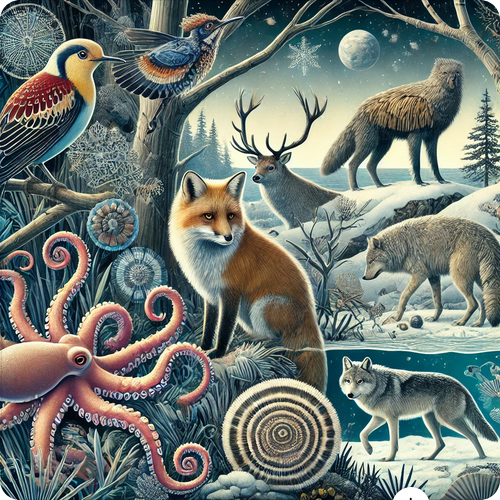The animal kingdom is filled with wonders, from astonishing survival strategies to behaviors that reveal the complexity of life on Earth. Exploring these secrets not only deepens our appreciation for nature but also highlights the remarkable ingenuity of evolution.
Unique Adaptations
Animals have developed extraordinary adaptations to thrive in their environments. The Arctic fox, for example, has a thick coat that changes color with the seasons—white in winter to blend with snow, and brown in summer to match the tundra. Similarly, the pistol shrimp can create a shockwave with its claw, stunning prey with a burst of sound and heat.
Social Behaviors
Social structures in the animal kingdom are equally fascinating. Elephants are known for their deep familial bonds and mourn the loss of herd members. Wolves communicate through complex vocalizations and body language, demonstrating a pack dynamic built on cooperation and hierarchy.
Ingenious Survival Strategies
Some animals exhibit behaviors that seem almost unbelievable. The mimic octopus can impersonate other sea creatures like lionfish or flatfish to evade predators. The lyrebird in Australia is a master of mimicry, capable of imitating chainsaws, camera shutters, and other sounds from its surroundings.

Mating Rituals and Displays
Courtship behaviors are often intricate and captivating. The peacock’s extravagant tail display is designed to attract mates, while the bowerbird builds elaborate structures decorated with colorful objects to impress potential partners.
The Importance of Observation
Studying animal behavior has practical implications. Understanding predator-prey dynamics, for instance, helps in ecosystem management. Research on animals like bees has informed agricultural practices by emphasizing the role of pollinators in crop production.
A Shared World
Animals remind us of the beauty and interconnectedness of life. By observing their behaviors and adaptations, we gain insight into the delicate balance of ecosystems. Protecting this diversity is not just a scientific endeavor but a moral obligation to cherish the natural world.